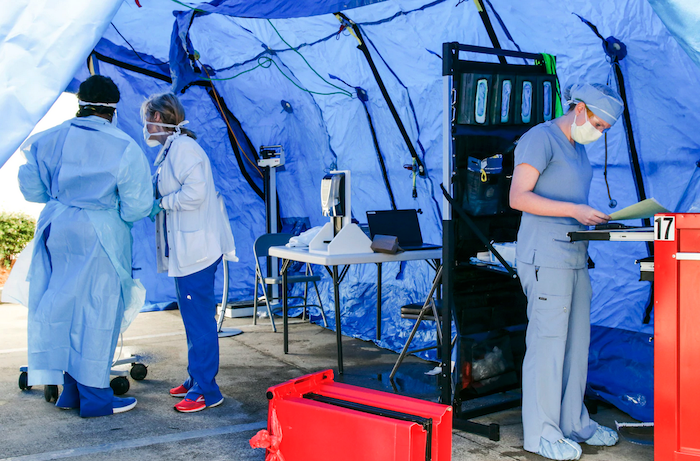Fill out that medical directive now.

By Megan L. Ranney, Jeremy Samuel Faust and Chuck Pozner
When there are no ventilators to be had, no intensive-care-unit beds to be occupied, what will hospitals do for elderly patients who have run-of-the-mill respiratory failure? Or for patients with heart attacks or any of the innumerable dire reasons that people need emergency care?
Now more than ever, medical directives about end-of-life care are essential, especially for the elderly, who in the coming weeks and months may find themselves requiring emergency attention, whether for covid-19 or some other illness. With the prospect that ICU beds could soon be in short supply — as they already are in parts of New York City — it is vital for physicians to know, and to honor, every patient’s explicit wishes.
In the absence of that information, many patients may well be assigned ICU beds or placed on ventilators even though they might not ever have wanted any “heroic measures” taken if they had been consulted before falling ill.
We physicians are trained to have these conversations and to have them in ways that reveal patients’ wishes and priorities, while not unduly influencing them. But the conversations are rarely simple.
For one thing, ideas that are second nature to physicians are often foreign concepts for everyone else. Terms such as “mechanical ventilation,” “extracorporeal membrane oxygenation” and “cardiopulmonary resuscitation” seem to fly off our tongues. Yet even when we translate seemingly impenetrable jargon — saying “breathing machines,” “lung bypass” and “chest compressions” instead — we frequently fall short of plainly explaining the patients’ realities. Outcomes are poor much of the time, covid-19 or not. But just because there may be little hope does not mean there is none.
With millions of people now seeing almost nonstop news coverage about the covid-19 onslaught, many may be privately thinking about their own wishes, or considering asking family members about theirs. That may make the conversation with doctors less unexpected and therefore a little less jarring.
Others who thought they had long ago settled on their end-of-life preferences might, in light of the pandemic, have begun to reconsider. For that reason, we urge both health-care workers and families to reopen conversations on the subject with patients and loved ones before they are in the throes of life-threatening illness. We also urge patients and families to record these preferences on paper, with medical orders or living wills, and have them ready for communication with their doctors.
And doctors must respect those wishes. Even under normal circumstances, too often patients’ own explicit choices to forgo heroic measures are ignored. They end up receiving care they never wanted, and great harm is done. That must stop.
With infection concerns limiting access to emergency departments and ICUs, families may not be able to have these talks when patients are in treatment. The conversations might be most relevant for residents of skilled nursing facilities and long-term-care facilities, and other vulnerable individuals for whom life on a ventilator may be crueler than it is compassionate. But everyone needs to think about these questions. No one is immune.
As physicians, our approach matters. We must offer to have these conversations, never impose them. And the invitations must be both welcome and accepted. We hope to never have to make life-or-death decisions based on the availability of a ventilator, and simply by bringing forth the thoughtful wishes of patients, the need to make such heart-rending choices may be postponed indefinitely.
We cannot fully control how many people will be infected in the coming weeks and months. But through discussions with patients and their families, we can respect their wishes, potentially save lives and — most important — make difficult decisions in the light of day, not in the heat of the moment.
Complete Article ↪HERE↩!
